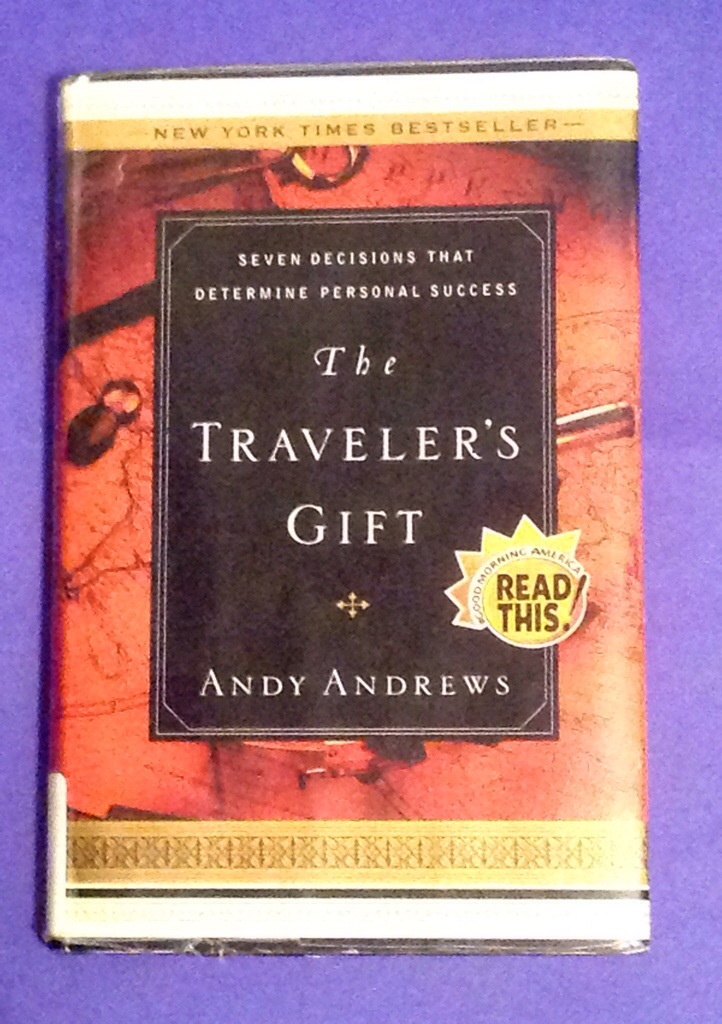Book Review: The Traveler’s Gift
I love reading, especially science fiction, but also westerns, techno thrillers and a fair amount of non-fiction. So, you would think these book reviews are a natural for me.
The problem, in my opinion is when authors attempt to mix genre’s. I’ve read Louis L’Amore’s detective stories. They aren’t as good as his westerns. But, the worst is when a writer attempts to use storytelling to teach business concepts. It’s painful. The dialogue is stilted. The plot is paper thin. The characters are a flat as a sheet of paper.
The Traveler’s Gift was slightly better than most in this respect, but that’s not high praise.
The story involves a man named David. He’s 46 years old and recently lost his job. And he’s not sure what to do so he attempts to commit suicide. We are then taken on a journey through time as he meets with various figures throughout history and they give him important lessons or decisions he must make to be successful.
First Harry Truman tells him, “The buck stops here.” in other words, own your decisions and stop being a victim.
Second he is transported to ancient Jerusalem where King Solomon teaches him “I will seek wisdom.”
Third he’s off to the battle of Gettysburg where “Joshua Chamberlain of the Twentieth Maine” gives him the third decision for success: “I am a person of action.”
His fourth visit is to the crows nest on the Santa Maria where Christopher Columbus explains he must have “a decided hearth.”
His fifth visit is to a hidden room in Amsterdam during the Nazi occupation. Anne Frank teaches him “Today I will choose to be happy.”
His final earthly teacher is Abraham Lincoln, again at the battlefield in Gettysburg. Lincoln teaches him “I will greet this day with a forgiving heart.”
I say his final earthly teacher, because his seventh visit is to a way-station between earth and heaven where he meets a slightly bookish Angel Gabriel. The angel explains “I will persist without exception.”
David is then shown a vision of his future where he’s a huge commercial, financial, personal and in all other ways success.
There’s nothing terrible about the lessons the author Andy Andrews offers. They are all good messages. But, I was put off by the manner he choose to explain them. I had three main problems with his technique.
First was his view of history is slightly skewed. For example, his Lincoln is very 20th Century. Lincoln certainly freed the slaves, but he was also in favor of moving them “back” to Africa. Andrews’ Truman hates nuclear weapons and agonizes over the decision to drop the bomb. It’s not a historically accurate description. Even his Columbus is too humble. Columbus insisted on a title of “Admiral of the Ocean Seas.” Andrews characterization of him was generous to a fault.
The second problem I have with Andrews’ approach is the idea that it takes literally the greatest men in history to convey these lessons. Is the message to take responsibility for your actions more powerful because President Truman delivers it? From a literary standpoint it feels like Andrews is compensating for a weak message by finding powerful messengers.
Finally, I have a problem with the main character’s motivation. We find a character who is so weak that he decides to abandon his wife, his family and take a coward’s way out. Does he think his family will be better after he’s dead? Not really. He simply knows that he won’t have to be responsible anymore.
Maybe it’s because I was in David’s position. I was out of work, hugely in debt, had no health insurance, two cars that the bank was going to repossess, and 12 children at home. I had been exactly where David was. The idea of simply giving up always seemed like a cowardly course.
It was hard for me to really care about David’s journey through history knowing that the author had to arrange for him to get advice from some of the greatest men in history to convince him to do what he should have done anyway.
And at the end of the book we are shown what “success” looks like: world famous and abundantly rich.
Really? THAT is the goal? How about a man who works his butt off to get out of debt, who pours everything he has into providing for his family. Maybe someone who at the end of his life has had a modest career but has done the hard things to care for his family and we get to meet his children and grandchildren and realize that success isn’t measured in money?
Again, “The Traveler’s Gift” isn’t a bad book. At 206 pages it’s an easy read. I also freely acknowledge that my less than stellar review is at odds with the accolades the book has garnered. It was a New York Times bestseller. And Andy Andrews has had much more success than my poor scribblings will probably ever garner me.
I just think he could have done such a better job sharing his seven points.
2.5 Stars
Rodney M Bliss is an author, columnist and IT Consultant. He lives in Pleasant Grove, UT with his lovely wife and thirteen children and one grandchild.
Follow him on
Twitter (@rodneymbliss)
Facebook (www.facebook.com/rbliss)
LinkedIn (www.LinkedIn.com/in/rbliss)
or email him at rbliss at msn dot com


Trackbacks & Pingbacks